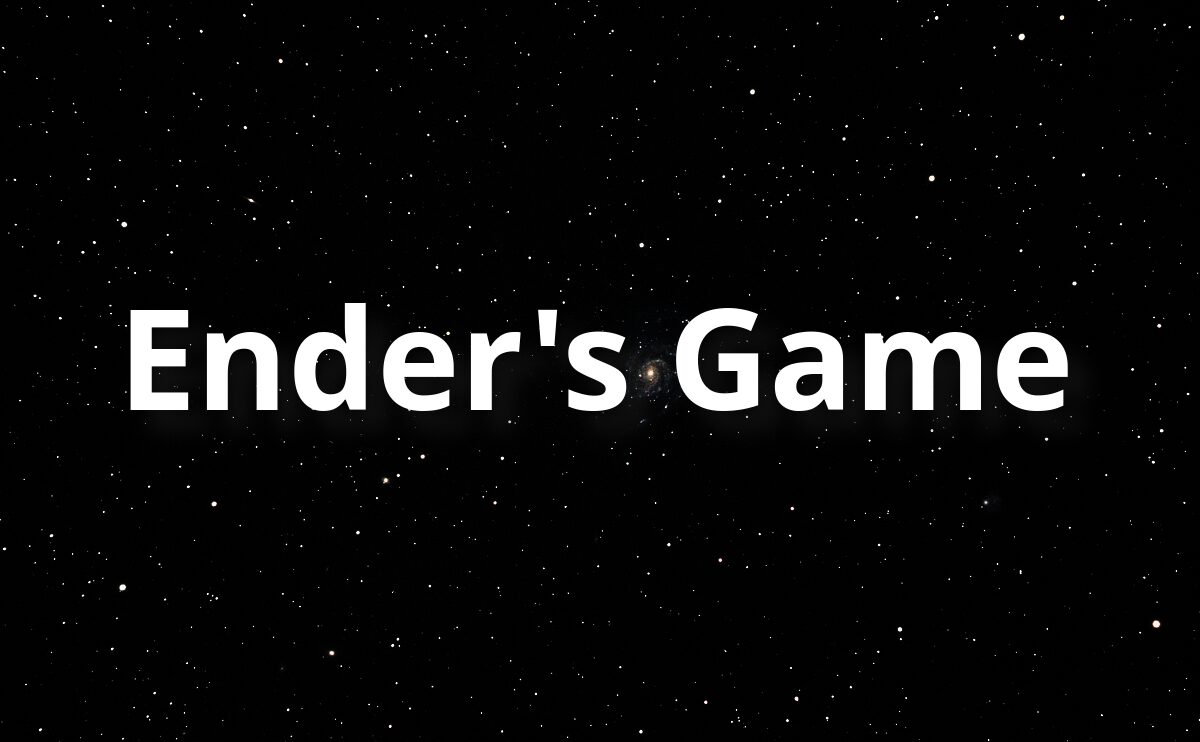Ender’s Game / Orson Scott Card / sci-fi
to pontificate
Ender’s Game: A Playground for Morality and War
Ender’s Game, a seminal work of military science fiction, throws a child soldier, Ender Wiggin, into a brutal training program designed to create the ultimate military commander. But this isn’t just a story about spaceships and laser battles. It’s a crucible for examining the ethics of war, the nature of childhood, and the burden of genius.
Check the Wikipedia.
Hugo Nebula Award Doble Crown Op.
Ender’s Game is a 1985 military science fiction novel by American author Orson Scott Card. Set at an unspecified date in Earth’s future, the novel presents an imperiled humankind after two conflicts with an insectoid alien species they dub “the buggers“. In preparation for an anticipated third invasion, Earth’s international military force recruits young children, including the novel’s protagonist, Andrew “Ender” Wiggin, to be trained as elite officers. The children learn military strategy and leadership by playing increasingly difficult war games, including some in zero gravity, where Ender’s tactical genius is revealed.
https://en.wikipedia.org/wiki/Ender%27s_Game
Keyword: military science fiction
Expanding the Pontificate:
The Morality of War Games: Ender excels at the war games, his strategic brilliance leading to devastating victories. Yet, are these victories truly triumphs? The lines between simulation and reality blur. Are we celebrating a hero or training a monster? Card forces us to question the ethics of turning children into weapons, even for a supposedly noble cause.
The Fragility of Innocence: Ender’s exceptional skills isolate him from his peers. Thrust into a world of violence and manipulation, his innocence is gradually eroded. The question arises: Can a child truly understand the weight of war, the lives lost in the name of strategy?
The Burden of Genius: Ender is burdened by his intellect. He craves love and acceptance, yet his brilliance alienates him. Is genius a curse? Does it rob us of a normal life and force us to walk a lonely path? Card explores the psychological toll of exceptional ability.
The Cycle of Violence: The Buggers, our insectoid enemies, are portrayed as both ruthless and victimized. Has humanity demonized an alien species to justify its own aggression? Does this cycle of violence have any hope of ending?
Beyond the Battlefield: Ender’s Game transcends the genre of military science fiction. It’s a commentary on the human condition, our capacity for violence, and the search for redemption. It’s a story that stays with you long after the last page is turned, prompting reflection on war, morality, and the complexities of human nature.
On ‘Ender’s Game‘ @Gemini AI ✍️
Arthur C. Clarke As the day fades Brown Tabby Cat Childhood’s End Cordwainer Smith David Brin Double Crown Dreamsnake Dune Series Ender's Game Frank Herbert Frederik Pohl Gateway Hugo Instrumentality of Mankind Isaac Asimov Joe Haldeman Jupiter Larry Niven Locus Nebula Neuromancer Nightfall Norstrilia Orson Scott Card Quadruple Crown Rendezvous with Rama Ringworld Robert A. Heinlein sci-fi sci-fi(Classic) Speaker for the Dead Startide Rising The Dispossessed The Door into Summer The Forever War The Fountains of Paradise The Gods Themselves The Left Hand of Darkness Triple Crown Ursula K. Le Guin Vonda N. McIntyre William Gibson Ψυχή :: 黎明
Ender’s Game
Books related to ‘Ender’s Game‘
Ender’s Game

Leave a Reply